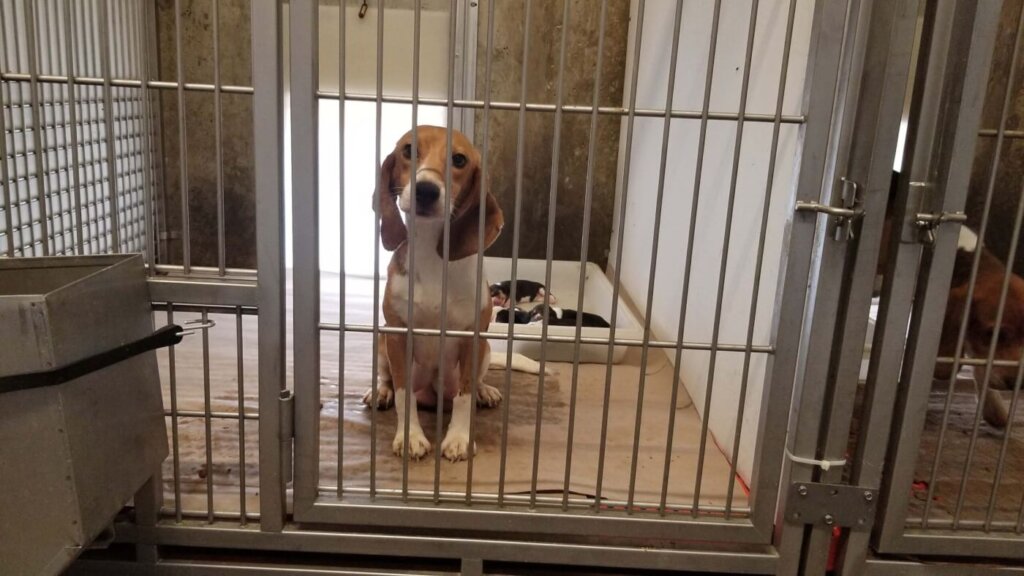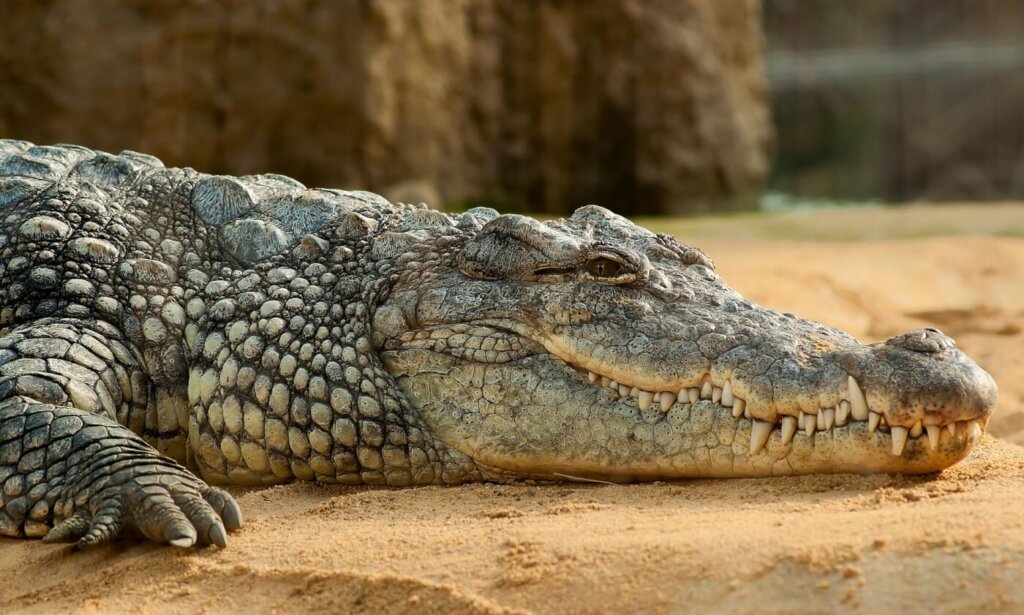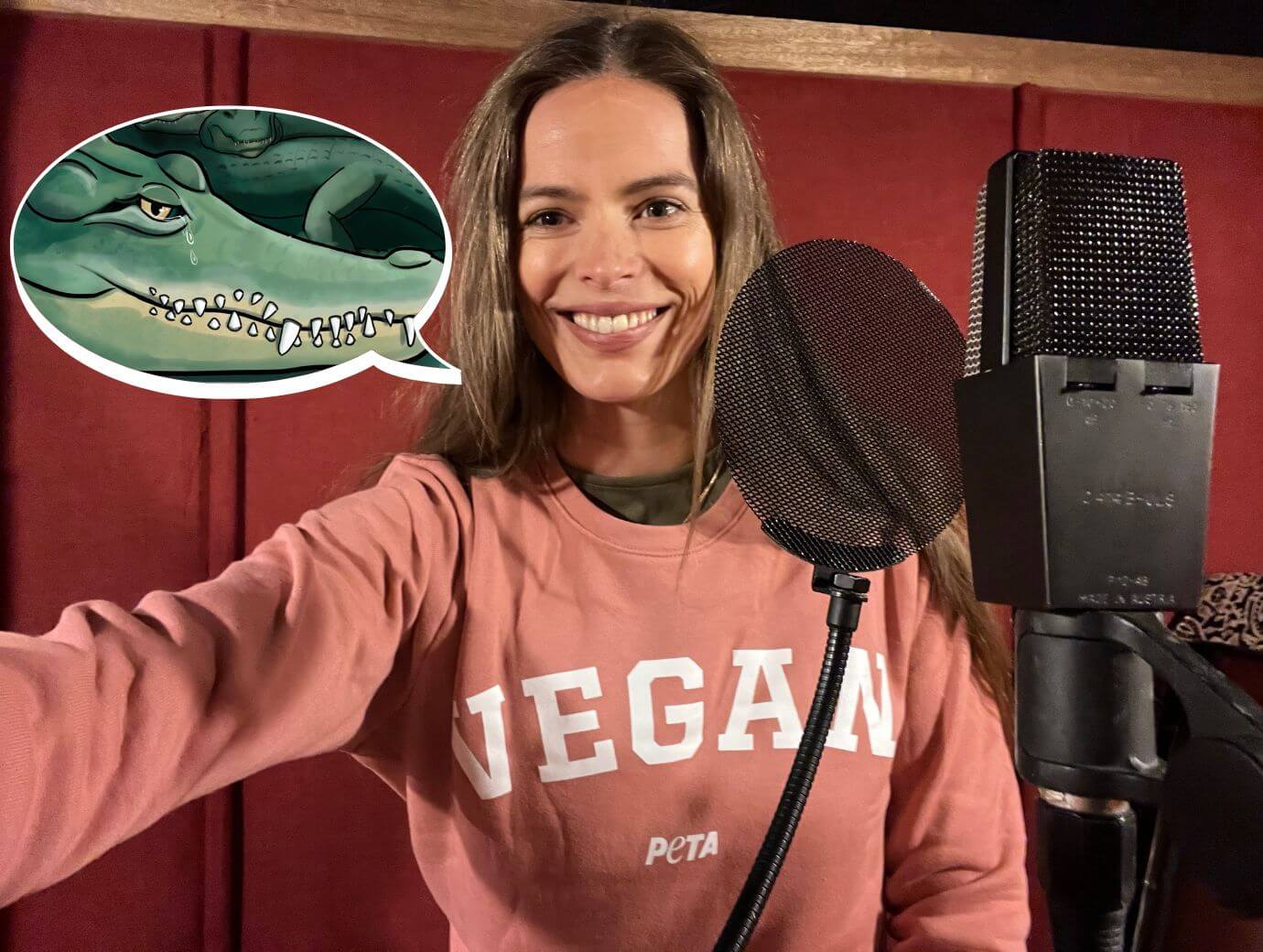
Robyn Lawley Speaks Out Against Australian Crocodile Farms
One of the most famous faces and voices of Australian fashion has spoken out against the country’s crocodile-skins industry.
In a new PETA video, Sidney the crocodile – voiced by Robyn Lawley – tells the story of how she was abused and killed for fashion.
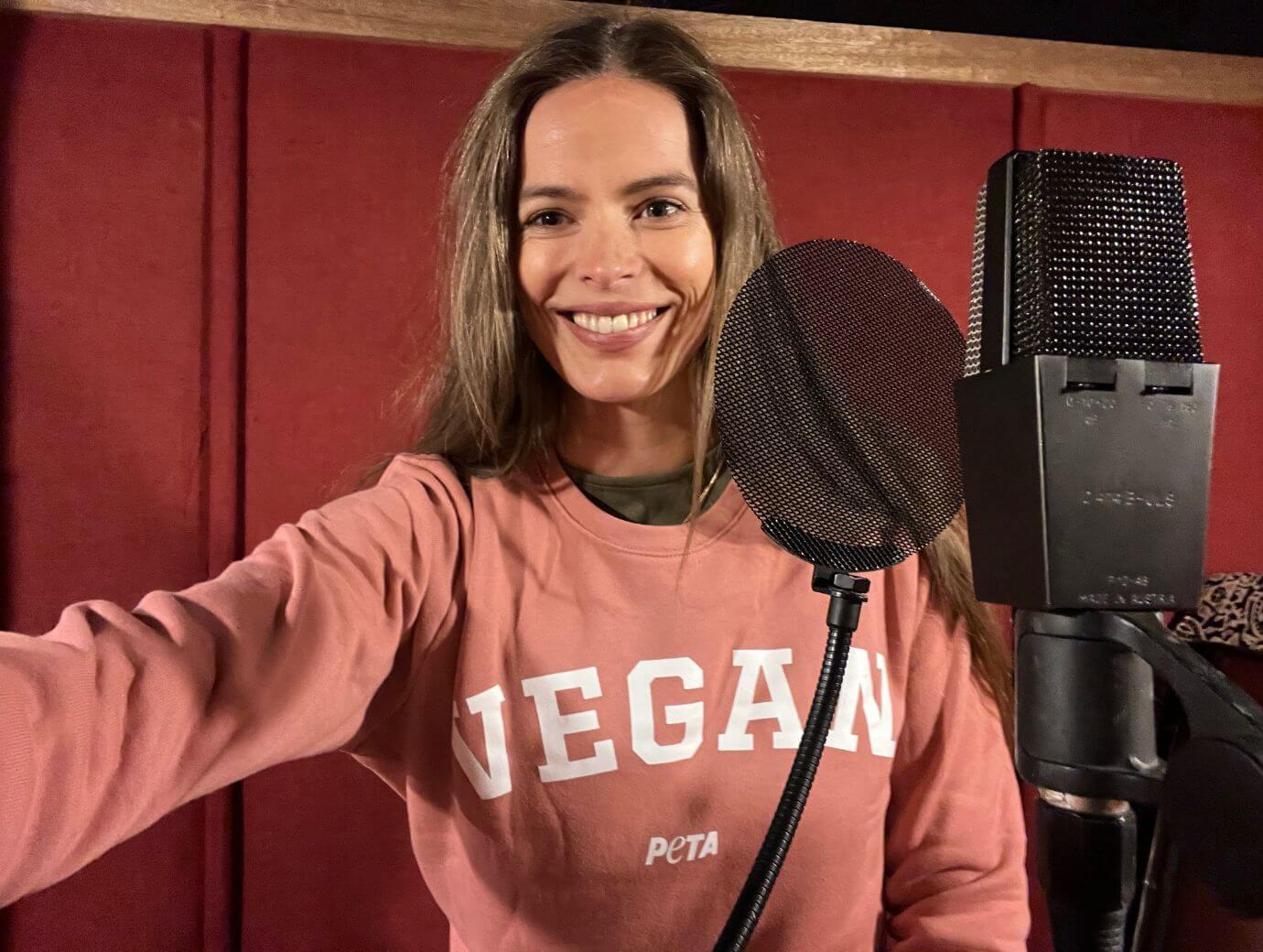
The supermodel – who headlined “The Curve Edit” at Afterpay Australian Fashion Week in May and hosts the popular podcast Every Body With Robyn Lawley: Surviving & Thriving in a Body Shaming World – hopes the video will help consumers understand that animals are individuals, not materials to be hacked into pieces.
“Australia’s crocodile-skin factory farms are butchering our native animals,” says Lawley. “For every bag, belt, or pair of shoes made of a crocodile’s skin, a highly intelligent and sensitive animal was held captive, lived in misery, and endured unimaginable suffering.”
Croc Farming in Australia Is Big Business
Footage released in 2021 by the Kindness Project revealed that massive crocodile farms operating in Australia and supplying skins to fashion house Hermès confined animals to cramped cages or tiny concrete pits filled with filthy water, then electrocuted, dragged, and mutilated them, sometimes while still conscious. At least three crocodiles endure this abuse for just one Hermès crocodile-skin bag.
PETA Australia and other PETA entities have exposed cruelty on reptile farms in Texas, Zimbabwe, and Vietnam, and the story is always the same – grim, close confinement and a violent death.
Exotic Skins and Zoonotic Diseases
Because crocodiles who are raised on farms for their skin are kept crowded together in highly unhygienic conditions – sometimes one on top of another in pits of putrid water – conservation experts warn that the next pandemic could come from the fashion industry.
Much like the “wet market” where the COVID-19 pandemic originated, crocodile farms create a breeding ground for many zoonotic pathogens, including Aeromonas spp, E. coli, Pseudomonas spp, salmonella, trichinella, vibrio, and West Nile virus – all of which can be carried by crocodilians and transmitted to humans.
-Warning: Graphic Content Below-
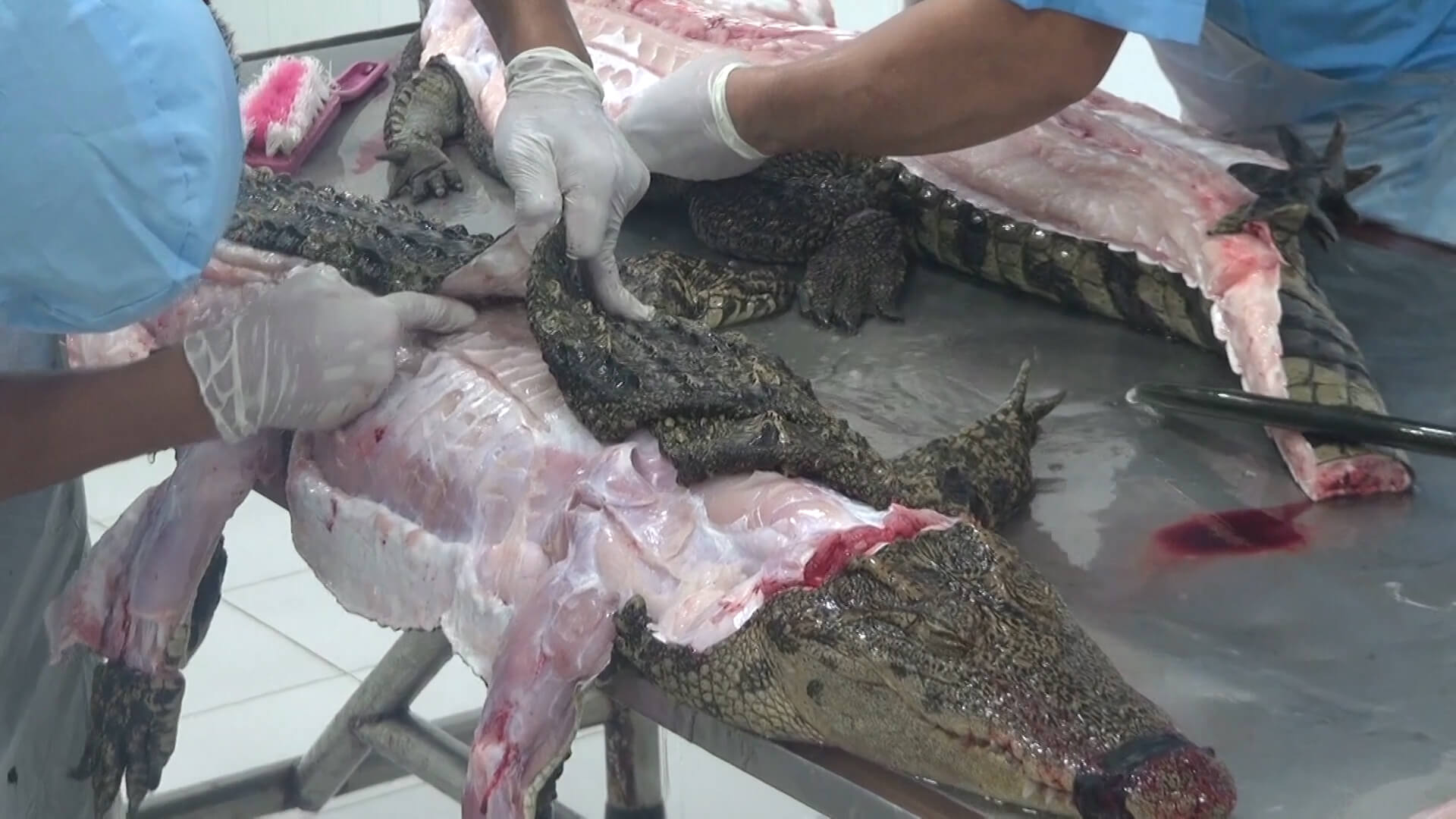
Hermès Plans Australia’s Largest Crocodile Farm
There’s nothing stylish about cramming sensitive animals into pits, hacking them apart, and leaving them to die – yet fashion companies like Hermès continue to expand crocodile-farming operations in Australia.
The latest proposed development would imprison up to 50,000 saltwater crocodiles in the Northern Territory.
This comes at a time when exotic skins are falling out of fashion. Burberry, Calvin Klein, Chanel, HUGO BOSS, Tommy Hilfiger, and Victoria Beckham have all banned crocodile and other exotic skins from their collections.
Hermès should invest in humane, sustainable, and future-proof projects, not build new factory farms to torment animals and create a breeding ground for new pandemics.
Join us in urging Hermès to shed exotic skins now:
Animals Are Suffering in Laboratories – Help Save Them Now
